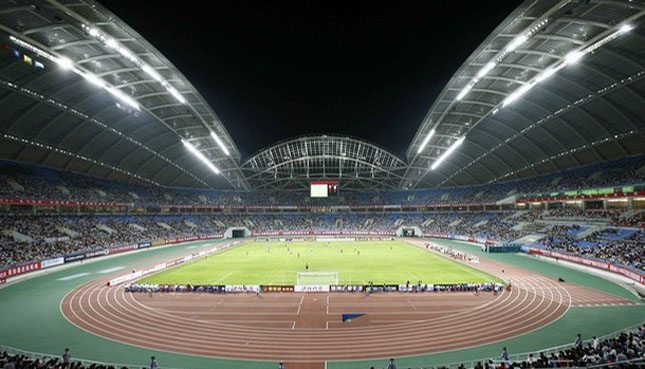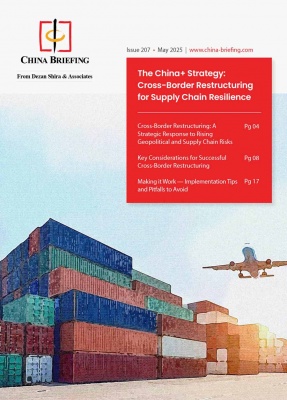Olympic Soccer Helps Lift Shenyang Out of Rust Belt

Aug. 20 – In this second of our features on China’s other Olympics cities, we take a look at Shenyang, long considered to be in the heart of China’s dilapidated rust belt, but now also home to Olympics events (soccer matches have been held in the new stadium here).
Shenyang has a colorful past, during the last two centuries, iron and coal have been mined here extensively as the region is rich in minerals, a fact that did not go unnoticed by either the Russians or the Japanese (the latter invaded much of Northeast China during WWII and used both the raw materials and cheap labor to generate iron and steel supplies for the hungry Japanese military machine).
With the area cut off from China and renamed Manchukuo, Shenyang served as the de facto capital, with the deposed last Emperor Pu Yi installed as a puppet head. The replica Forbidden City built for him by the Japanese where he lived can still be viewed today; it is one of the more surprising artifacts of China’s history.
With the communists sweep to power, the region was intensively industrialized again as part of new China’s plans to take on the West. However, outmoded equipment, a lack of investment and a gradual slide into apathy hid Shenyang as a business destination for much of the 80s and 90s.
Liaoning province symbolized what was wrong with China. It became regarded as an area whose time had passed. Sad, grimy buildings and broken factories gave notice that this was indeed, a decaying city. Inefficient State-owned enterprises churned out shoddy goods no-one wanted to buy just to keep people off the streets.
Change began way about 15 years ago, coinciding with the rise to power of the charismatic Mayor of Dalian, Bo Xilai. Describing himself to Chris Devonshire-Ellis, senior partner of Dezan Shira & Associates, as a dongbei ren (North Easterner), he began to revolutionize his home city and also saw the potential of neighboring cities such as Shenyang and Changchun. Keeping heavy manufacturing out of his own city, but steering manufacturing to these cities, and using Dalian as a service and export center for the products they produced, Shenyang began to stir back to life.
Steel works were invested in, much of it with Japanese and Korean money, and the region began to spring some surprises. Flying under the radar of much U.S. and European investment (still largely true today), cities such as Shenyang began to feel the power of the Yen, and the area revitalized as Japanese and Korean vehicles began to be produced here. Component parts manufacturers soon followed and Shenyang began to look and feel prosperous. The arrival of German automaker BMW ten years ago added to the feel good factor as the city rediscovered its destiny.
Shenyang’s prosperity today has much to do with its focus on the Chinese auto manufacturing market, much like its sister city to the north, Changchun. But the city has diversified, and bio-technology and pharmaceuticals have also become major industries here.
The German pharmaceutical manufacturer Grunenthal GMBH moved their regional headquarters into Shenyang with Dezan Shira & Associates help, just one example of foreign investors eyeing the potential links that the city offers. Dalian is just two hours south, and Harbin, another regional hub, five hours north. That’s important, as Siberian timber passes down along the eight lane highway and ends up in Shenyang. Much of it is then processed and used in the construction, furniture and wood pulp industries, and then sold on, either internally in China or exported via Dalian.
Dezan Shira & Associates has a long history of conducting business in Shenyang, and meets regularly with senior government officials to ascertain what types of investors the region needs. With Shenyang as the regional capital (and therefore to some extent looking over Dalian, Liaoning’s second largest city), contacts here are important. As is always the case, regional differences mean it is important to have on-the-ground, first hand experience of the area when assessing investments. The firm appointed Richard Hoffmann, an experienced German lawyer, to manage the city and to assist clients investing in Liaoning. Over the past ten years, that client base has grown considerably.
The new Olympics Stadium, host to soccer matches, has seen sell-out matches and enthusiastic crowds. If the Olympics also serves as a flame to ignite the wheels of redevelopment and progress, then Shenyang is the optimum city to hold events—reborn, wealthy, and working itself back to life.
For questions related to investing in Shenyang, please contact Richard Hoffmann, Dezan Shira & Associates regional manager.
- Previous Article Blue Skies and White Sails: Olympic Events Drawing Investor Attention to Qingdao
- Next Article Capitalism Prevails at Communist China’s Olympics


























